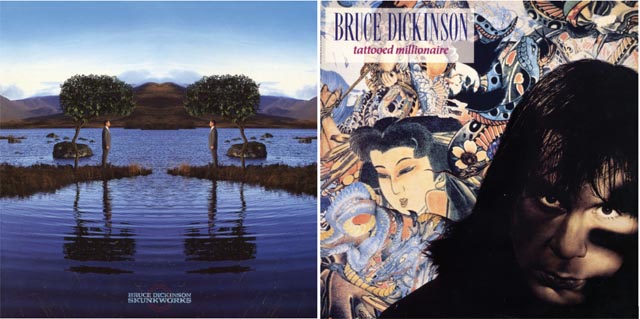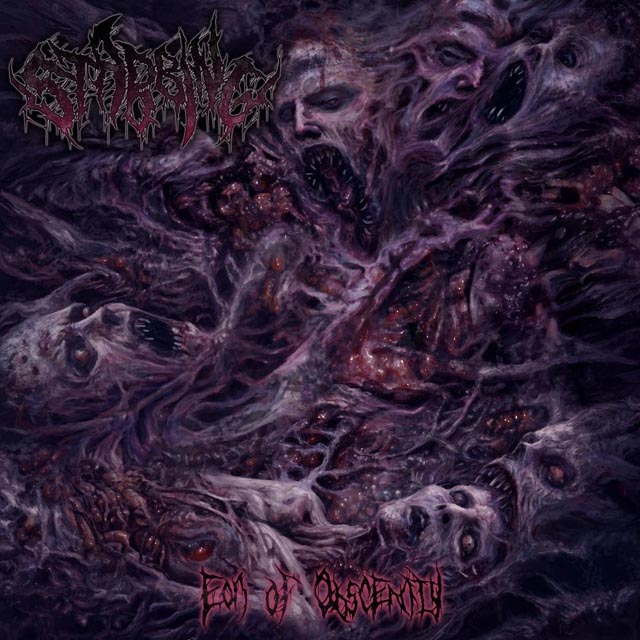
After spending the better part of a year in self-imposed exile, Philip Anselmo will be returning to the spotlight when Superjoint releases their first album in 13 years. The follow-up to 2003’s A Lethal Dose of American Hatred will be called Caught Up in the Gears of Application, and will be released on November 11th via Housecore. The promotional blitz for the album has begun, and in a cover story for Decibel, of course the reason for Anselmo’s withdrawal from the public eye, his comments and actions at the Dimebash, were called into question.
In case you’ve been living under a rock, video footage surfaced of Anselmo seig-heiling and saying “white power” at the Dimebash. He originally refused to apologize, then once it got bigger than just a few websites talking about it, he made several contrite apologies and cancelled Down’s performances as artists like Machine Head’s Robb Flynn and Anthrax’s Scott Ian took him to task. With Pantera’s 20th anniversary of The Great Southern Trendkill comes out this Friday and Superjoint, this is how he responded to being labeled a racist:
“First and foremost, I do take full accountability. I’m not deflecting at all. What I did was insulting, absolutely, and abhorrent, because it did truly upset people, and it hurts my heart that anyone would think that I’m the dreaded ‘R’ word — a racist. Anyone who truly knows me knows that it’s utterly ridiculous. But if I did offend my Jewish friends, people I work with, my associates, other people in bands . .. if I were to upset people in that particular way — that’s why I apologized. That apology is there — and no, you won’t get another one ever again.”
He then reiterated that he was drunk when it happened:
“First and foremost, I was absolutely smashed drunk. No excuse, but I was. It was late and my mood was mixed because of the situation in general. We were honoring my dead, murdered guitar player and it’s still something that a piece of me has not come to grips with. I know people are reading this in black and white, but it makes my heart ache as I say it. Now, [from] the second I stepped on that stage until the bitter end of that night, there were a couple of kids with an absolute agenda constantly, all night long, calling me the dreaded ‘R’ word. ‘Racist, racist, racist,’ over and over and over-in between songs, during songs, during my stage banter. And I marked it: At 4:35 in the video, you can see my attention slowly beginning to get irked and agitated. By 5:10, you can see me actually eyeballing these people and engaging. They were 70 feet away from me screaming this shit. I even invited them up onstage and dared them to call me that to my fuckin’ face, and I said I would knock them out cold. You can check the video for yourself. Can you hear the kids? No, you can’t. But I most certainly did. And I’ve talked with people who were there who can corroborate because they were standing right next to them.”
He reiterates that the “white power” line was related to the white wine he was drinking and was an inside joke between him and black King’s X bassist Dug Pinnick. He goes on to the say that the only other time he might have been racist was in the ’90s, when he misunderstood a “stop black on black violence” shirt, thinking that it advocated black on white violence.
Anselmo says he’s done apologizing, which, well OK. He obviously learned that what might be sort of funny around friends isn’t funny. And even if he somehow still is racist deep down (which we’re not saying he is), he probably won’t be making comments that can be taken out of context or misconstrued again. Unfortunately, it left enough of a black mark on him (no pun intended) that he can expect to be asked about it for the rest of his life. It’s a shame it took such a shitty thing to do for it to be a learning moment for the singer.
[via]











